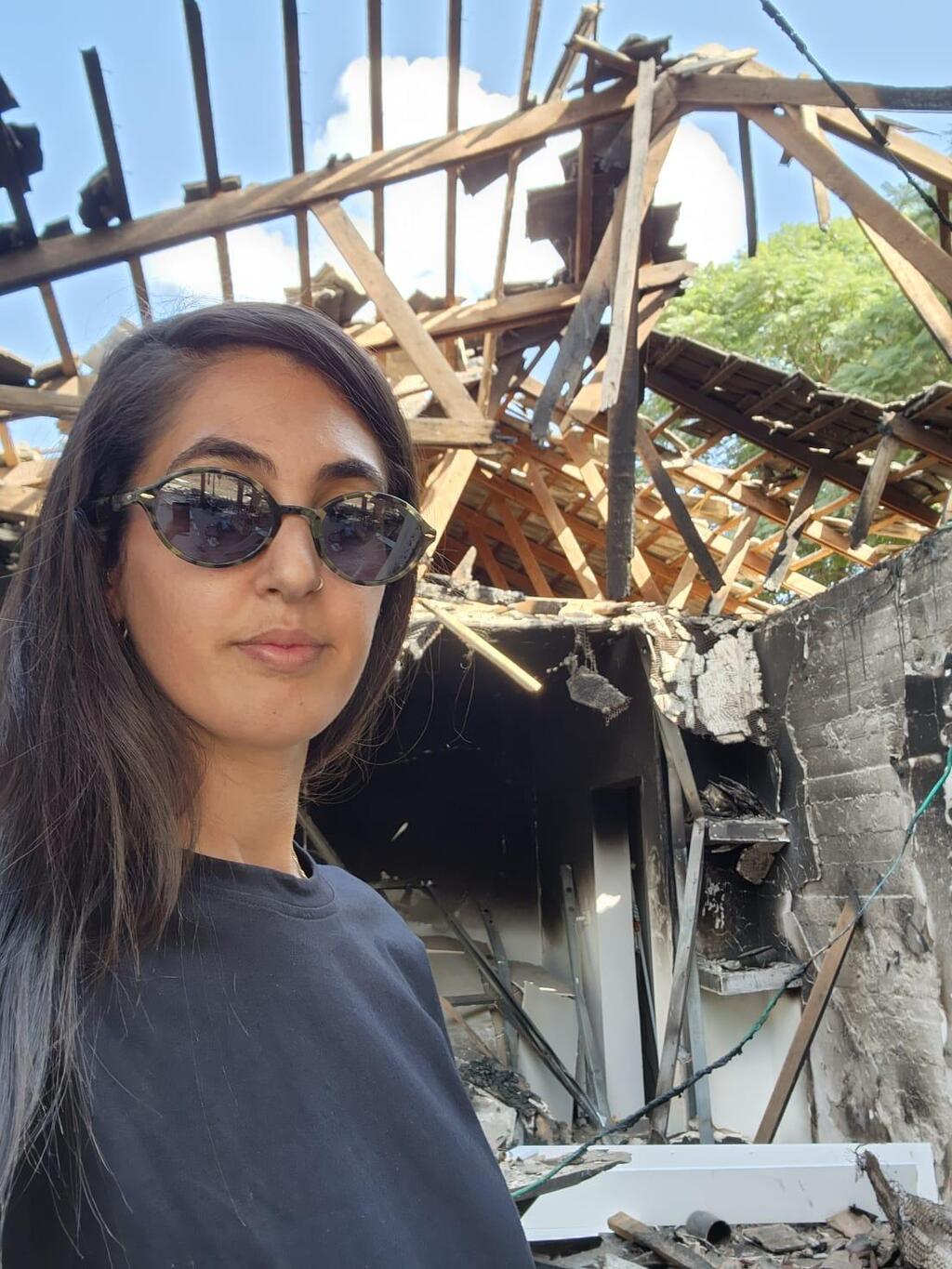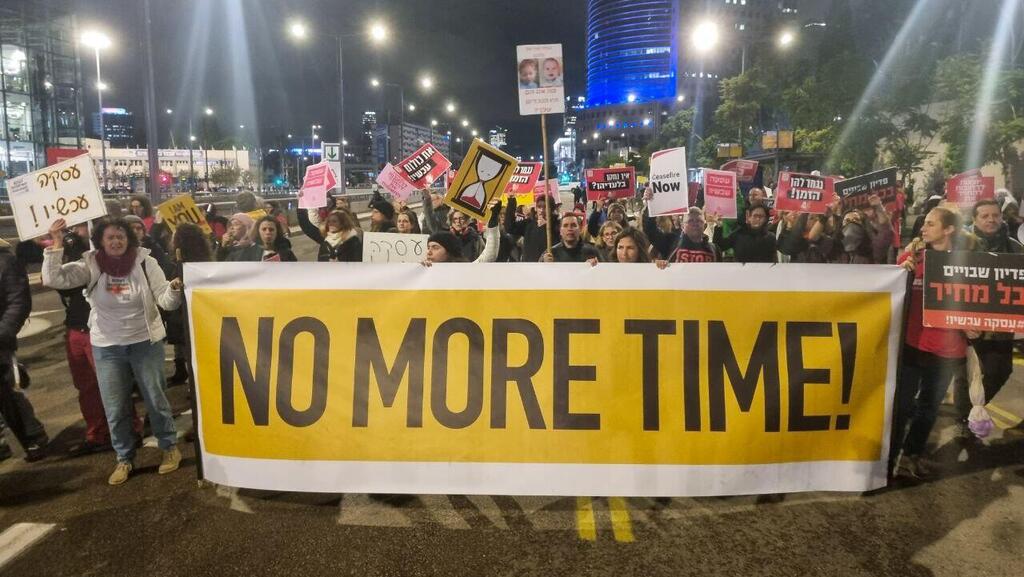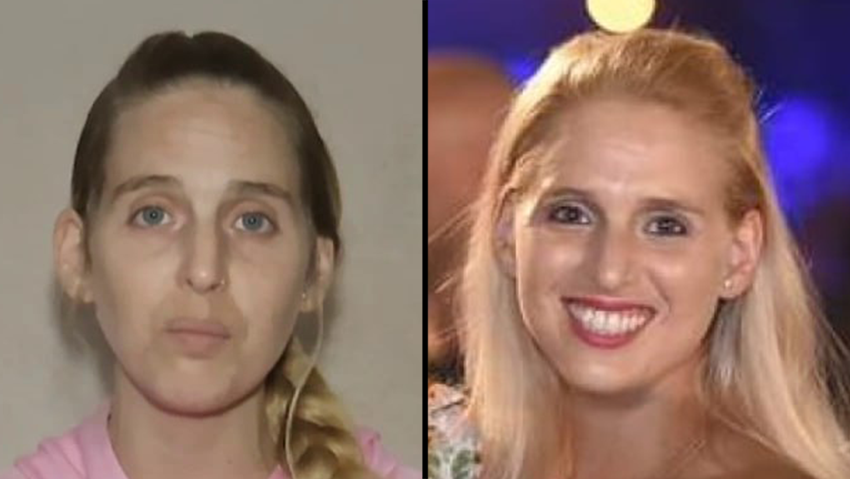Getting your Trinity Audio player ready...
"I was seeing the end. I was sure we were going to die, and only waited for death. I couldn't believe there was a chance we’d get out of there," says Dorin Cohen from Kibbutz Kfar Aza. "When arrived at Shefayim, I heard Doron (Steinbrecher), my friend, was kidnapped. And that's hard because you can't move on from it. The fear I felt in that 28 hours in the protected room, she experienced it for over 120 days."
More stories:
Cohen, who until October 7 lived in Kfar Aza with her husband and two young children, is one of 30 survivors of Hamas’ murderous terror attack, who are taking part in a documentary project gathering filmed testimonies of women who experienced the massacre and the war in Gaza in general.
The project is an initiative by the Eden Association, operating in Kibbutz Dorot and specializing in trauma treatment for women. "A quick review of previous wars Israel fought proves that there’s no chapter solely focusing on women," says Ronit Shoval Atwan, CEO of the Eden Association. "As a feminist association operating in southern Israel, we knew we wanted to give a voice to the stories of the women who survived these horrors."
What distinguishes women's war stories?
Shoval Atwan: "History is usually told through a male lens, so it was important for us to give a voice to women and what they experienced during that day, and to show the public that women also have a story and that their history is no less important than that of men.
"Unlike men, women allow themselves to express more emotion when telling their stories. They also tend to seek more help around treating their trauma and look for a place where they can unpack what they've been through."
Since October 7, we’ve been exposed to horrifying stories of rape and sexual assault that women experienced during the massacre, and recently a UN report was published presenting another aspect of the crimes the victims went through, and that some of whom may still be undergoing in captivity – could this be another reason why it’s important to present female voices?
Shoval Atwan: "Women navigate the world with a fear of sexual vulnerability, and we’ve been exposed to it to a greater extent during our work on the project. Men, fortunately, don’t go out with fear of being raped, so this perspective wouldn’t exist if we didn't make sure to present history also through the eyes of the survivors."
Were there stories the public was less exposed to out of the dozens recorded in the project?
Shoval Atwan: "There are testimonies from the Nova Music Festival, stories about the escape, and those who saw people next to them being murdered. Regarding rape, we encountered survivors who said their greatest fear was being raped, and they preferred to die over being raped.
"There were also survivors who told themselves, 'Maybe if I won’t put up a fight and allow the terrorists to take me I could save my family from being slaughtered.' The issue of rape arose in all the testimonies in the project, further emphasizing the fact that women navigate the world with a fear of being raped."
On October 7, Hamas terrorists set fire to Cohen’s home where she and her family live, and were miraculously saved without being abducted or murdered like many of their friends.
"I always say it could’ve easily been any one of us held captive by Hamas, and therefore we must fight for every one of them still in there," she says. "Every time Doron comes to my mind, I immediately try to block the thought out because it's very difficult for me to think about what she's going through in there.
"I want to believe she's strong, and that she knows we're fighting for her. She has an amazing family who left everything behind and has been only dealing with her and the efforts to bring her home since October 7. Every day in captivity is critical, and I very much hope that she and all the other men and women held hostage will come back home already."
How do you deal with this trauma?
"It's very difficult. For us, as long as our families and friends are in captivity, we’re still living October 7 and continue to experience the trauma daily. I don't have the ability to move forward in life as long as they're there, and only when they return will I start trying to deal with what I went through on that day."





